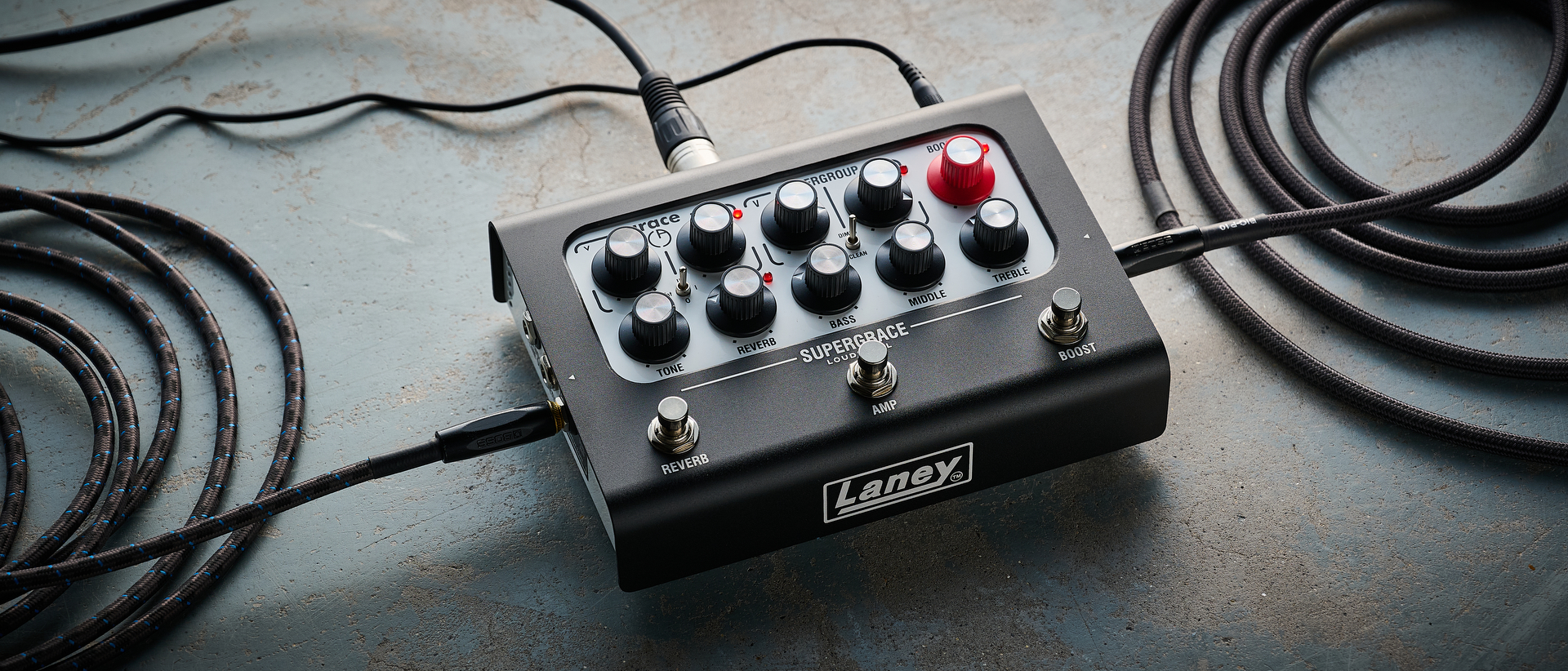“If you sound really good when you’re practicing, that means you’re practicing things you can already do, which isn’t really benefiting you fully”: Guthrie Govan shares his top tips for soloing
The Aristocrats virtuoso is a generational talent – here is his advice for getting the most from your practice

All the latest guitar news, interviews, lessons, reviews, deals and more, direct to your inbox!
You are now subscribed
Your newsletter sign-up was successful
We can argue all night and all day about who the greatest guitar player in the world is, but we can surely all agree that there is an elite group of play-anything players – the guitarist for whom nothing, no style or technique, seems out of reach.
Guthrie Govan is one. His work with the Aristocrats and with the Oscar-winning composer Hans Zimmer takes the electric guitar to the outer limits of its potential.
We asked him for some tips on how to approach lead guitar – not on X, Y or Z techniques, but advice players can use to build a sensibility on the instrument, to get better. This is what he told us…
Music is a language
“Everyone’s journey getting acquainted with the guitar is slightly different. Everyone eventually becomes the player they deserve to be based on how they chose to spend their time practicing. It’s what they chose to prioritise… that’s what informs the end result. Someone whose goal is to become an improviser might naturally gravitate towards a path like the one I’ve picked – which is based around wanting music to feel like talking.
“Music is a language, so let’s try to make it feel like my first language. Part of my practice time would therefore be getting things I can hear in my head out onto the fingerboard. If that’s the goal you set yourself, then naturally you will spend time trying to get to that place, where you feel more fluid as an improviser and less scared to play something you haven’t prepared, practiced, or drilled before the audience shows up.”
Copy everything you hear
“For some people, it’s a psychological barrier that stops them from improvising. It’s the fear of playing something that might not work. But it’s a bit like how babies are born and know how to swim, then they forget and have to relearn.
“I like to think when we’re born we all know how to improvise and then society suppresses some of that. Part of feeling good when you are improvising is being comfortable with the process and trusting yourself.
All the latest guitar news, interviews, lessons, reviews, deals and more, direct to your inbox!
“But there are other more mechanical things you can work on. I’m a big believer in copying everything you hear around you – from ringtones to movie themes and whatever is on the radio.”
Sing notes as you play
“Anything you hear is fair game and material you can use to work on your ear. Listen to everything that’s going on around you and try to replicate it on the instrument.
“You can do that in two ways – one where you stay in a more positional scale box zone of the fingerboard, getting comfortable with the interval between each string, but also trying to play more vocally, moving up and down the neck on fewer strings. Those two approaches fit together and compliment each other nicely. There’s room for both of them.
It’s good to get into the habit of singing every note as you play it. That way you’re able to predict what each note will sound like as it happens
“The general idea is that if your ear gets really good at understanding what other people are playing and you get really good at replicating that, and then one day, when you invent a melody in your head that no-one in the world has heard yet, you can use that same copying skillset to get the music out of your head and into your amp.
“I’m essentially preaching the ‘work on your ear’ approach, not at the expense of anything else. For a lot of players, it’s just a case of adding this into your existing routine. Even if you’re sat there doing scales and arpeggios, it’s good to get into the habit of singing every note as you play it. That way you’re able to predict what each note will sound like as it happens.”
Think bigger
“Nothing comes entirely out of the vacuum. If either of us were to improvise two notes, someone will have played that melody before. There are only so many intervals. Part of developing that language is thinking in bigger building blocks.
“If you can recognise an arpeggio as one thing, maybe viewing it more like a word rather than four letters, that can really aid the flow of how you improvise. Too many small ideas can be overwhelming. A smaller quantity of more complex ideas is closer to speaking a language.”
Work on things you haven’t nailed yet
“There is a trap when you get too good at a lick and it becomes a comfort. Whenever you want to make yourself feel better, part of your subconscious will encourage you to play that thing you’ve played a million times before because you know it will sound well-executed.
“The part about that that’s haunting is you realize deep down that you’re not really choosing to play that. It’s your hand choosing to play that. It’s not your soul. There’s an interesting thing about practicing and how we choose to divide our time.
“If you sound really good when you’re practicing, that means you’re practicing things you can already do, which isn’t really benefiting you fully. Some of what you practice should sound shit, because then you know you are working on something that needs to be worked on. There’s a balance there.”
Amit has been writing for titles like Total Guitar, MusicRadar and Guitar World for over a decade and counts Richie Kotzen, Guthrie Govan and Jeff Beck among his primary influences as a guitar player. He's worked for magazines like Kerrang!, Metal Hammer, Classic Rock, Prog, Record Collector, Planet Rock, Rhythm and Bass Player, as well as newspapers like Metro and The Independent, interviewing everyone from Ozzy Osbourne and Lemmy to Slash and Jimmy Page, and once even traded solos with a member of Slayer on a track released internationally. As a session guitarist, he's played alongside members of Judas Priest and Uriah Heep in London ensemble Metalworks, as well as handled lead guitars for legends like Glen Matlock (Sex Pistols, The Faces) and Stu Hamm (Steve Vai, Joe Satriani, G3).


